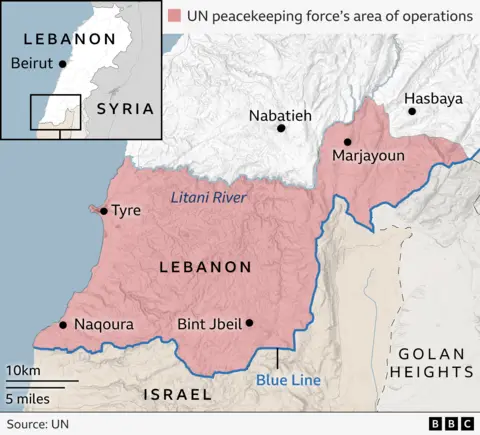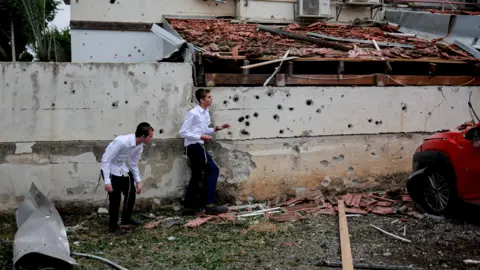Intl desk, Nov 27: US President Joe Biden has announced a ceasefire deal to end 13 months of fighting between Israel and with Hezbollah, the Lebanese militia supported by Iran, reports BBC.
In a joint statement, the US and France said the agreement would cease fighting in Lebanon and “secure Israel from the threat of Hezbollah and other terrorist organisations”.
This is what we know about the ceasefire deal from official briefings and media reports.
The ceasefire is meant to be permanent
US President Joe Biden told reporters that the agreement was “designed to be a permanent ceasefire”.
Under the terms of the ceasefire, over 60 days Hezbollah will remove its fighters and weapons from the area between the Blue Line – the unofficial border between Lebanon and Israel – and the Litani river, about 30km (20 miles) to the north.
Hezbollah fighters will be replaced by Lebanese army forces in that area, who will ensure that infrastructure or weaponry is removed and that it cannot be rebuilt, according to a senior US official.
Over the same 60 days, Israel will gradually withdraw its remaining forces and civilians, Biden said, adding that it would enable civilians on both sides of the border to return to their homes.

5,000 Lebanese troops will replace Hezbollah
The Lebanese army is expected to deploy 5,000 troops to the south under the agreement, according to a US official.
However, questions remain about their role in enforcing the ceasefire, and whether they would confront Hezbollah if needed, which would have the potential to exacerbate tensions in a country where sectarian divisions run deep.
The Lebanese army has also said it does not have the resources – money, manpower and equipment – to fulfil its obligations under the deal, although that could be alleviated by contributions from some of Lebanon’s international allies.
But many Western officials say Hezbollah has been weakened and that this is the moment for the Lebanese government to re-establish control over all the country’s territory.

Who will monitor the ceasefire implementation?
The agreement largely tracks UN Security Council resolution 1701, which ended the 2006 war between Israel and Hezbollah.
Under resolution 1701, areas south of the Litani should be free of any armed personnel or weapons other than those of the Lebanese state and the UN peacekeeping force (Unifil).
But both sides claimed violations of the resolution.
Israel says Hezbollah was allowed to build extensive infrastructure in the area, while Lebanon says Israel’s violations included military flights over its territory.
This time, the US and France will join the existing tripartite mechanism, which involves Unifil, Lebanon and Israel, which will be charged with monitoring violations, the senior US official said.
“There will be no US combat troops in the area, but there will be military support for the Lebanese Armed Forces, as we’ve done in the past. But in this case, it’ll be typically done with the Lebanese army and in conjunction with the French military as well,” the official said.
Alluding to Israeli concerns, Biden said: “Hezbollah terrorist infrastructure in southern Lebanon will not be allowed to be rebuilt.”
Israel claims the right to respond to violations
Prime Minister Netanyahu said that Israel would “maintain full freedom of military action” in Lebanon “with the United States’ full understanding”.
“If Hezbollah violates the agreement and tries to arm itself, we will attack. If it tries to rebuild terrorist infrastructure near the border, we will attack. If it launches a rocket, if it digs a tunnel, if it brings in a truck carrying rockets, we will attack,” he asserted.
Biden supported that view, telling reporters: “If Hezbollah or anyone else breaks the deal and poses a direct threat to Israel, then Israel retains the right to self-defence consistent with international law.”
But he also said the deal upholds Lebanon’s sovereignty.
The Israeli demand for the right to strike back is not believed to be part of the ceasefire agreement because it was rejected by Lebanon. To get around the issue, media reports had suggested that the US would issue a letter supporting Israel’s right to act.
